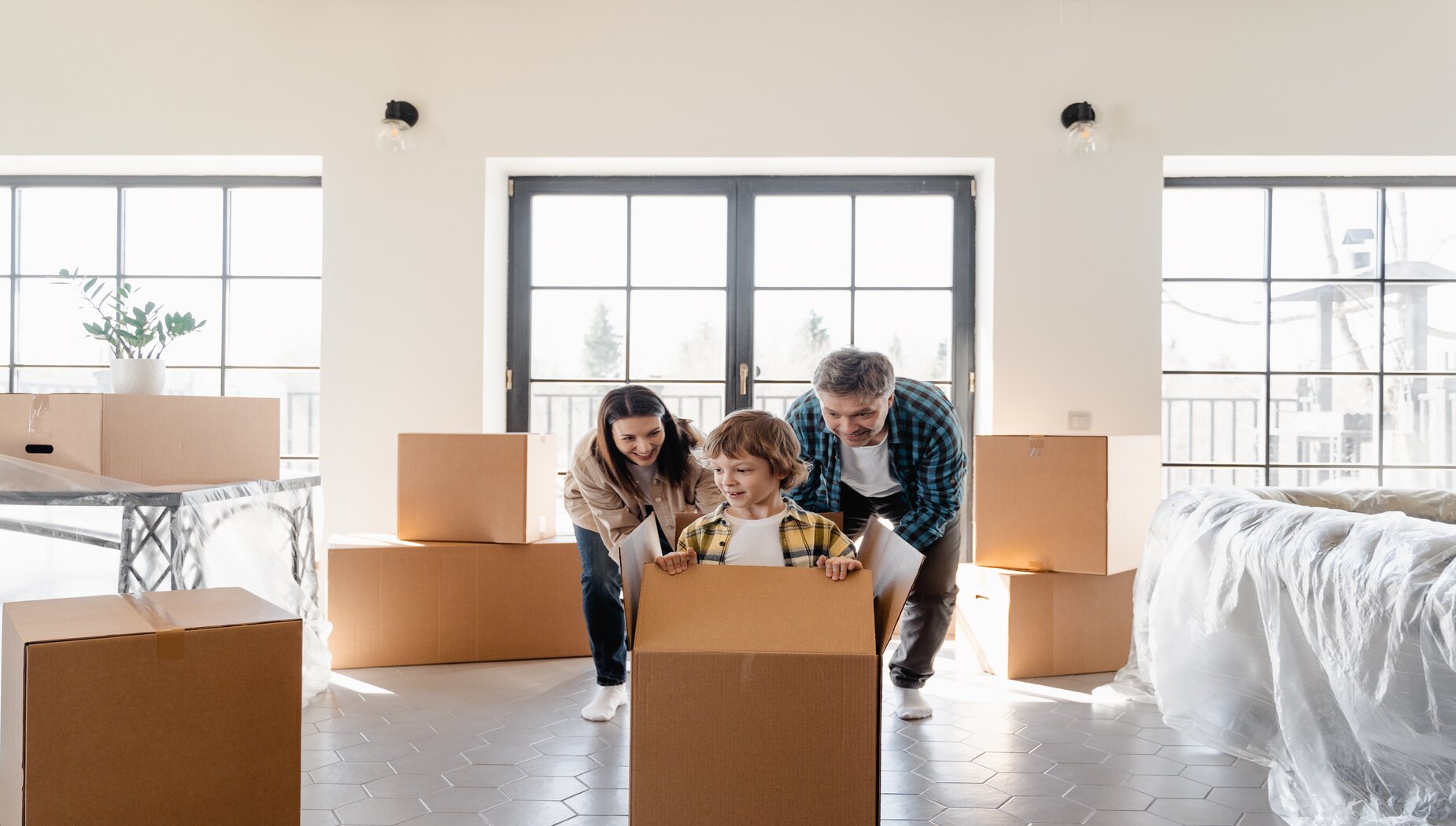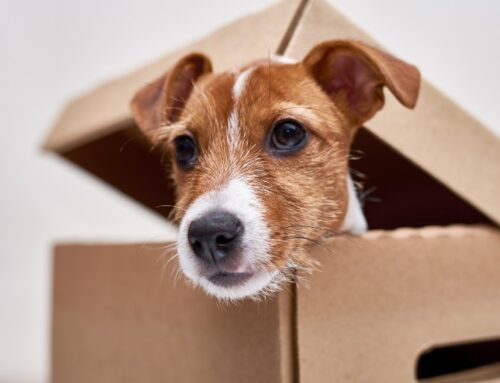Moving to a new city can be a stressful and tiring endeavor and often the first thing you want to do once you arrive at your new home is plop down on your bed and unwind – but first, there are some essential things you need to do right after your moving day. First, you won’t be able to relax on your bed until your bed has actually been unpacked. This conveniently takes us to the first thing you can do when Moving Day is coming to a close and you’ve arrived at your new home.
1) Organize and Unbox!
Now that the move is complete and the sense of relief is slowly starting to wash over you, it’s important to take advantage of the time you have and get organized about how you plan to use it.
Planning your move should include both the pre-move and post-move time as both are key to the success of your move and reducing stress.
Start by organizing a to-do list that includes all the tasks to be done in your home (i.e. organizing boxes into their respective rooms, checking for damage, physically moving furniture around, etc.) and external tasks to be done (i.e. running errands to the store for supplies, etc.). Once your to-do list is feeling full and accomplishable, get down to work!
The logic of unboxing your home functions in a converse way to boxing up your home. Unlike boxing up, the unboxing process should take on a much slower pace. This allows you to furnish and organize your home as you see fit without the stress of potentially moving furniture/possessions later on, which can be cramped and disorganized.
Take advantage of the clean slate you’ve been given and get creative! In addition, It is important to plan out the rooms to unbox first. Take a look at our box guide before you move to get a better handle on how you want to pack your possessions and better smooth out the unpacking process.
Unboxing stuff for the garage/closet should not take priority when your bed hasn’t been assembled yet. We recommend starting with the bedroom and bathroom first before moving on to other rooms because who doesn’t want a hot shower and a comfy bed to sleep on after a move?
2) Become Familiar With Your New Home
No one hates a dirty little secret as much as a new home-owner/renter, so don’t let your new home keep any from you! Put on your explorer’s hat and take a look around your new place. This can mean checking for the following things:
- Is there pre-existing damage? Should the leasing office/HOA/sellers be aware of any issues from previous owners/tenants? How are the pipes? Are there any leaks or issues that need fixing? (generally speaking, this should be done PRIOR to moving in but it would serve you well to take a second pass through to make sure you didn’t miss anything)
- Is my home secure? Are there ways to increase security against theft or unwanted attention?
- If you have a child, it is important and beneficial to consider how you will be child-proofing your new home as you unpack and organize.
- Are the doors and windows secure? Do they need fixing/replacing?
- Are there smoke detectors in each room and if so, are they all functioning? Fire extinguisher placement/number?
- Locate the fuse box and the main water stop valve in case of emergencies, and then write down the readings of your water- and electricity meters.
- Are utilities already set up? How much are you paying? Are there alternative providers?
At the end of the day, you want to be as familiar with your new home as possible. This will help prevent any future damages or surprises, inevitably saving you both money and time while providing a little peace of mind.
3) Change Your Mailing Address
One of the first things you should do once you move is change your mailing address. Moving can mean a whole host of changes can be occurring and you don’t want to be left out of the loop! Luckily, this is not a difficult change to make and can be done one of two ways:
- You can head to your local post office and fill out a change of address card.
- Follow this link to the official USPS website which allows you to change your address from the comfort of your new home!
Note: It can be helpful to leave your new address with the renters/owners who are taking over your previous home, this will allow them to forward on any mail they receive before the change of address is in full effect.
4) Register Your Motor Vehicle
This applies to those of you who have crossed state lines to move. If you reside in the same state after your move, then please disregard this step and move on to the next. If you are new to a state, remember that you MUST register your vehicle with the state in order to drive it.
Luckily enough, this is also an easy switch to make at your local DMV. If you have no idea where that local DMV office is located, then you can use the DMV office finder to learn of its whereabouts. The leeway for having this done is anywhere between 10 to 30 days after you move so get this done quickly to avoid any fines! In order to find this information, you can search online for the central DMV office for your state and they will be able to provide that information to you as well as any other questions you may have about the process.
5) Enroll Your Children in School
If you have children, it is important to do your due diligence ahead of time and have them registered for a local educational institute PRIOR to moving, but if you haven’t had a chance, now is the time.
It is important that your children are enrolled in a school that will best suit their needs as well as set them up for the best possible future, so this process shouldn’t be taken lightly! Start by doing some research online, learning about the local school district and the best options for you and your family.
Next, reach out to any contacts you may have in the area, try to secure some first-hand recommendations or experiences from friends or colleagues who may also have kids or grew up in the area.
The most helpful thing you can do is visit a few schools with your kiddo(s) and get a first-hand look at things. Speak to school officials and get a clear picture of the school you may be enrolling your child in.
6) Our Four-Legged Friends
If you are moving with pets, it’s important to remember that this process can be just as stressful, if not more so, for them as it is for you. Take time to make sure that they are as comfortable as possible when moving and that they get adequate time to explore their new home.
One of the best things you can do for your pet is thoroughly clean any space they will be spending a lot of time in. This can help with protecting your pet’s keen sense of smell and providing a clean, safe space for them to explore and get comfortable in.
Additional helpful steps can include:
- Being observant of any changes to your pet’s behavior and catering to them
- Exploring with your pet, introducing them to their new home and surrounding areas to familiarize them
- Initially, do not leave them unattended in a new place for long periods of time. This can be VERY stressful for a pet and we don’t want them anymore anxious than they may already be
- Be aware of your pet’s behavior over time. If anxiety or general discomfort does not improve after a few weeks, consider seeking professional assistance with your pet’s relocation experience through a local vet or trainer.
For Additional Information: “Moving With Your Pets” and “Moving With your Pet”
7) Focus On You and Your Experience!
The moving experience can exert tolls on you that you aren’t aware of immediately. During the hustle and bustle of getting from one place to another, the latent effects of moving away from what is familiar, your friends, old stomping grounds, etc. can lead to separation anxiety and what is called “relocation depression”. Take action before it gets to that point!
One of the best things you can do for yourself is to make some new friends! This will give you a sense of belonging and community, something no amount of planning or organization can give you. Try joining social organizations, sports/hobby clubs, or joining a local gym.
Even more locally, start by just saying Hi to your new neighbors and get to know those who will be living closest to you. But don’t neglect your old friendships! These relationships will keep you buoyant through the stress of moving/settling in and is a proven technique for overcoming relocation depression!
Another thing you can do for yourself is to explore your new city! There are few joys that match exploring a new city. The abundance and variety of experience, opportunity and interests should serve as an exciting facet of your post-move-in experience and not detract from it.
If you are tentative at first, that’s okay! Start with exploring your neighborhood or apartment complex. Next, see if there are any great local places to eat or shop.
Once you are familiar with your immediate surroundings, start branching out to local parks or points of interest, leaving the city proper for when you feel like you have a good grasp of your local community.
Challenge yourself to become a part of your new city, learn the attractions and history, maybe even take a walk in the shoes of the local culture and find what excites you!




